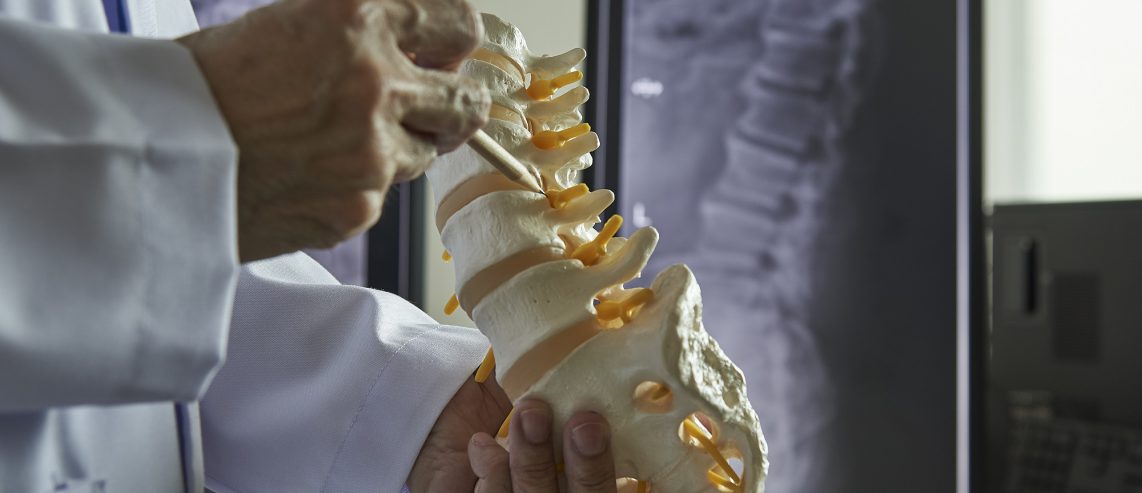Neurosurgeons treat health issues involving your brain, spine, and nervous system. These experts may use traditional (open) surgery. Or, they may use surgeries that need only tiny incisions (minimally invasive surgery) or no surgery at all (stereotactic radiosurgery).
Some of our experts may treat you without incisions at all.
You may need neurosurgery for many different reasons. You may have:
- An injury to your brain or spine.
- Problems in the vessels that supply blood to your brain or spine.
- Problems with the nerves that send signals to and from your brain and spine.
- Tumors in your brain, spine, or at the base of your skull.
If you have a tumor in your brain or spine, you might think you need surgery as soon as possible. While some tumors and health issues need emergency surgery, that’s not always true. Often, you have time to think about your options and choose a brain and spine surgeon that best meets your needs.
The process may feel scary. You may not know where to start. But it’s a choice that can affect your health, healing, and peace of mind.
Constantinos (Costas) Hadjipanayis, MD, PhD, is the director of the UPMC Center for Image-Guided Neurosurgery. He says choosing a brain and spine surgeon is all about asking the right questions. Here’s what you should know.
Never Miss a Beat!
Subscribe to Our HealthBeat Newsletter!
Thank you for subscribing!
You can now select the specific newsletters you'd like to receive.
You are already subscribed.
Subscribe to more newsletters in our email preference center.
Sorry, an error occurred. Please try again later.
Get Healthy Tips Sent to Your Phone!
How to Choose a Medical Center for Your Neurosurgery
The most crucial thing to know is that you can choose where to have surgery. You can also decide who will perform your surgery.
Asking good questions can help you avoid getting treatment at a hospital that doesn’t have the right experts. When thinking about a neurosurgery center, find out about:
The expertise of surgeons on the hospital’s team
If you have a rare or complex brain or spine tumor, you need treatment from experts in your tumor type. A subspecialist is an expert with extra training in one type of brain tumor or other neurological health issue.
At some medical centers, brain and spine surgeon may only spend part of their time on brain tumors. “Being in a place that has many specialists devoted only to brain tumors is so important,” Dr. Hadjipanayis says.
How many neurosurgeries the hospital does each year
We all know that the more you do something, the better you get at it. That’s also true for brain and spine surgeons. When thinking about where to have surgery, ask how many people have brain and spine surgeries at that hospital each year.
You may hear the words “high volume” used to describe a hospital that does many neurosurgeries. High-volume centers usually also see many brain and spine tumor types, notes Dr. Hadjipanayis. A high-volume center often has experts focused on treating complex brain tumors.
Which neurosurgery techniques and technologies the hospital uses
It’s vital to get treatment at a center where you’re offered options specific to your health issue, Dr. Hadjipanayis says. Options may include image-guided neurosurgery methods such as:
- Fluorescence-guided surgery (FGS). Experts administer an oral agent (Gleolan®) to patients with certain brain tumors that permits better visualization of the tumor at the time of surgery so surgeons can remove the tumor in a more complete and safe manner.
- Gamma Knife® radiosurgery. Experts use targeted radiation beams to destroy brain tumors while keeping healthy brain tissue safe.
- Neuroendoscopic surgery. Surgeons insert a thin, flexible tube with an attached camera (endoscope) through a small hole in the skull to remove tumors.
- Laser interstitial thermal therapy (LITT). Experts use special imaging to treat brain tumors with heat in this minimally invasive method.
- Robot-assisted exoscope microneurosurgery. Surgeons use a voice-controlled imaging system to better see brain tumors and remove them in a more complete and safe manner.
Neurosurgery research at the hospital
A medical center that’s involved in brain tumor treatment research may offer you access to new therapies and surgical methods. Ask if your hospital has brain and spine research and clinical trials.
How To Choose the Right Neurosurgeon for Your Needs
During brain and spine surgery, experts must find the safest ways to remove as much tumor and damaged brain tissue as possible. They also must decide which techniques will best protect healthy brain tissue and preserve brain functions like language and movement.
Choosing a brain and spine surgeon that meets your needs is crucial. If you get a brain or spine tumor diagnosis, here are some questions to ask:
How many people with tumors like mine have you treated?
You want a brain and spine surgeon who’s removed a lot of brain and spine tumors. Ask your surgeon how many people they see who have your tumor type — especially if it’s a rare or complex tumor. “I recommend patients look for a specialist devoted solely to brain tumors,” Dr. Hadjipanayis says.
How do you decide how to treat me?
Experts know that having other doctors weigh in may help them make better treatment choices. “One of the nice things we have at UPMC is our tumor board,” Dr. Hadjipanayis says. Our experts gather weekly to discuss patients, review test results, and think about treatment options.
Brain tumor boards may include experts in:
Weekly tumor board discussions play a critical role in making treatment choices.
Who else on your team will take care of me?
Look for a brain and spine surgeon who is part of a team of brain experts. Doctors, nurses, and therapists who focus on brain issues can help you recover. Your surgeon’s team should include:
- Intensive care experts who treat brain issues.
- Nurses who focus on treating people with brain tumors and other neurological issues.
- Experts in occupational therapy and physical therapy.
- Speech-language pathologists.
All of these are essential components of treatment, Dr. Hadjipanayis says. He adds that the most vital thing is to feel confident in your decision. “We’re fortunate at UPMC to provide a full array of surgical approaches for brain tumors,” he says.
Sources
About UPMC
Headquartered in Pittsburgh, UPMC is a world-renowned health care provider and insurer. We operate 40 hospitals and 800 doctors’ offices and outpatient centers, with locations throughout Pennsylvania, Maryland, New York, West Virginia, and internationally. We employ 4,900 physicians, and we are leaders in clinical care, groundbreaking research, and treatment breakthroughs. U.S. News & World Report consistently ranks UPMC Presbyterian Shadyside as one of the nation’s best hospitals in many specialties and ranks UPMC Children’s Hospital of Pittsburgh on its Honor Roll of America’s Best Children’s Hospitals. We are dedicated to providing Life Changing Medicine to our communities.

